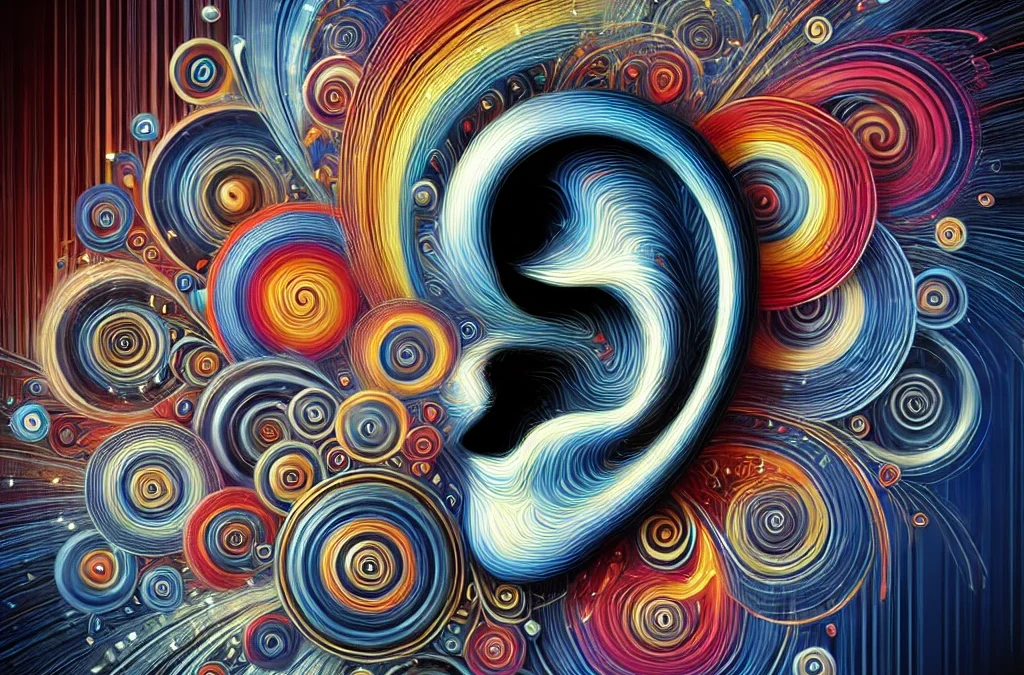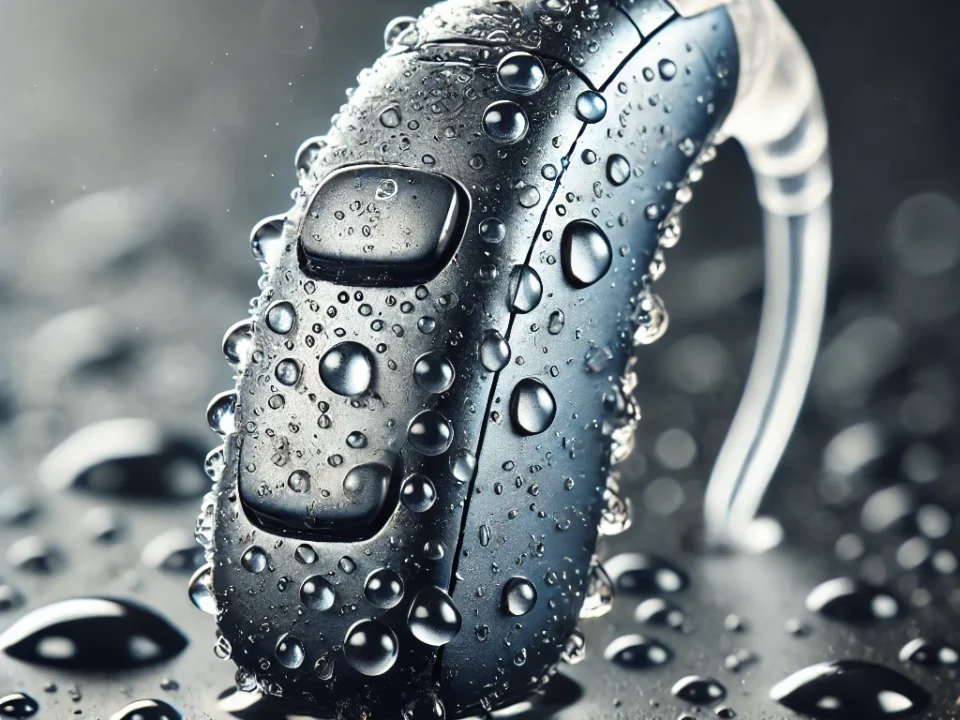
What is Noise-Induced Hearing Loss?
October 2, 2024
Is Noise-Induced Hearing Loss (NIHL) Permanent or Temporary?
October 22, 2024Tinnitus is a prevalent condition that affects between 10% and 25% of adults globally. It is a common experience where individuals hear sounds such as ringing, buzzing, or humming, without the presence of any external noise. It can vary in intensity and duration, and while it is not classified as a disease, it can be a symptom of other conditions such as hearing loss, exposure to loud noise, or ear infections. It can also occur due to no reason at all! Some people only experience it temporarily, while others suffer from chronic tinnitus that significantly impacts their quality of life. Let us explore what tinnitus is, its causes, and the available treatments that offer relief.
What Is Tinnitus?
Tinnitus is the perception of sound in one or both ears or even within the head, without an external sound source. It is a predominantly subjective experience, meaning that only the person experiencing it can hear it. These phantom sounds can vary in tone, volume, and frequency and can manifest as ringing, buzzing, whistling, or even clicking. In rare cases, tinnitus can be objective, where it can be heard by someone else with amplification, such as via a stethoscope.
Objective vs. Subjective Tinnitus
Subjective tinnitus is far more common and is usually caused by damage to the auditory system. In contrast, objective tinnitus can result from specific vascular conditions, such as aneurysms, or muscular issues like tensor tympani muscle spasms. Objective tinnitus usually required further investigation into conditions like temporomandibular joint (TMJ) disease or aneurysms.
Causes of Tinnitus
The exact cause of tinnitus is not always clear, but it is commonly linked to the following factors:
1. Noise Exposure
One of the leading causes of tinnitus is noise trauma. Prolonged exposure to loud sounds in environments such as factories, concerts, or during military service can lead to hearing loss and trigger tinnitus. This is especially common among veterans, musicians, and individuals working in noisy environments.
2. Hearing Loss
Tinnitus is often associated with hearing loss, particularly in older individuals. Age-related hearing loss, known as presbycusis, can trigger tinnitus as the auditory system attempts to compensate for diminished sound signals.
3. Ear Conditions
Tinnitus can result from ear infections, earwax buildup, and conditions such as Ménière’s disease, which affects the inner ear and can lead to vertigo and hearing loss.
4. Medications
Certain medications are ototoxic, meaning they can cause damage to the inner ear, leading to tinnitus. Drugs such as non-steroidal anti-inflammatory drugs (NSAIDs), certain antibiotics, some antidepressants, and even high doses of aspirin can contribute to the onset of tinnitus.
5. Chronic Health Conditions
Tinnitus has been linked to various chronic conditions such as high blood pressure, diabetes, thyroid disorders, and migraines. These conditions can affect blood flow or nerve function, potentially leading to tinnitus.
Can Tinnitus Be Cured?
Currently, there is no definitive cure for tinnitus. However, various treatments and therapies can help reduce the symptoms and make living with tinnitus more manageable.
Treatment Options for Tinnitus
Though a cure remains elusive, there are several ways to manage tinnitus symptoms:
1. Sound Therapy
Sound therapy involves using external noises to mask or drown out the internal sounds caused by tinnitus. Devices such as white noise machines, hearing aids with masking features, or even apps that generate calming sounds can help mitigate the effects of tinnitus, especially during quiet times like when trying to fall asleep.
2. Hearing Aids
For individuals with tinnitus related to hearing loss, hearing aids can amplify external sounds, making tinnitus less noticeable. Some hearing aids come equipped with tinnitus masking features that generate soothing sounds to reduce the perception of ringing or buzzing.
3. Cognitive Behavioural Therapy (CBT)
Cognitive behavioural therapy has proven effective in helping individuals manage tinnitus’s emotional and psychological impact. Through CBT, patients learn coping strategies to reduce anxiety and improve their overall well-being.
4. Acceptance and Commitment Therapy (ACT)
Acceptance and commitment therapy stems from CBT, and aims to teach people with tinnitus to accept that their feelings towards their tinnitus are appropriate, and help them navigate ways to continue doing the things that bring them joy, whilst accepting the presence of their tinnitus.
5. Self-guided treatment
There are a few emerging self-guided treatments that are showing promising benefit to people with tinnitus. In cases where patients do not feel comfortable speaking with a psychologist, or maybe do not have the financial or time means available, there are programs such as Tune Out which offers a self-guided CBT course specific to tinnitus. There are also app-based treatments such as MindEar, which are designed to support patients with every step of their tinnitus journey. MindEar offers CBT strategies and Mindfulness-based practices to empower patients to regain control over their tinnitus.
5. Tinnitus Retraining Therapy (TRT)
Tinnitus retraining therapy combines sound therapy and counselling to help individuals habituate to tinnitus sounds. Over time, patients become less aware of the sounds, and their brain begins to classify them as neutral, reducing the emotional distress they cause.
New Research and Treatments
Ongoing research into tinnitus is providing new hope for patients. Innovative approaches include:
1. Vagus Nerve Stimulation (VNS)
VNS is a technique that stimulates the vagus nerve to encourage neuroplasticity—the brain’s ability to rewire itself. Combined with sound therapy, this approach has been studied, looking at its effectiveness in reducing or eliminating tinnitus symptoms. No conclusive results have been obtained to date.
2. Deep Brain Stimulation
Deep brain stimulation is an invasive technique that involves implanting electrodes in specific brain regions to alter neural circuits responsible for tinnitus. There are currently less than 10 patients with reportable data on this topic, however preliminary research has shown some promising results.
3. Pharmacological Research
Researchers are exploring drugs that target hyperactivity in the auditory cortex—the brain region responsible for processing sound. Certain drugs have successfully reduced tinnitus symptoms in animal models, and clinical trials are underway to evaluate their effectiveness in humans.
The Importance of Interprofessional Care
Tinnitus management often requires the collaboration of an interprofessional team, including general practitioners, audiologists, ENT specialists, mental health professionals, and often dentists and physiotherapists. This coordinated care can enhance patient outcomes by addressing the underlying causes of tinnitus, offering tailored treatment options, and providing psychological support, ensuring that patients receive comprehensive care for their condition.
References
Basner, Landon, Jasper V. Smit, Daniel M. Zeitler, Seth R. Schwartz, Katie Krause, Aiyush Bansal, and Farrokh Farrokhi. 2024. “Deep Brain Stimulation for Primary Refractory Tinnitus: A Systematic Review” Brain Sciences 14, no. 5: 452. https://doi.org/10.3390/brainsci14050452
Chen, J., Chen, Y., Zeng, B., Hung, C., Zeng, B., Stubbs, B., Carvalho, A., Thompson, T., Roerecke, M., Su, K., Tu, Y., Wu, Y., Smith, L., Chen, T., Lin, P., Liang, C., Hsu, C., Hsu, S., Kuo, H., Wu, M., Tseng, P. (2021). Efficacy of pharmacologic treatment in tinnitus patients without specific or treatable origin: A network meta-analysis of randomised controlled trials. The Lancet, 39.
Fernández-Hernando D, Fernández-de-Las-Peñas C, Machado-Martín A, Angulo-Díaz-Parreño S, García-Esteo FJ, Mesa-Jiménez JA. (2023) Effects of Non-Invasive Neuromodulation of the Vagus Nerve for Management of Tinnitus: A Systematic Review with Meta-Analysis. J Clin Med. 12(11):3673. doi: 10.3390/jcm12113673.
Stegeman I, Velde HM, Robe PAJT, Stokroos RJ, Smit AL. (2021) Tinnitus treatment by vagus nerve stimulation: A systematic review. PLoS One. 16(3):e0247221. doi: 10.1371/journal.pone.0247221
van Zwieten G, Devos JVP, Kotz SA, Ackermans L, Brinkmann P, Dauven L, George ELJ, Janssen AML, Kremer B, Leue C, Schwartze M, Temel Y, Smit JV, Janssen MLF. (2022) A Protocol to Investigate Deep Brain Stimulation for Refractory Tinnitus: From Rat Model to the Set-Up of a Human Pilot Study. Audiol Res. 13(1):49-63. doi: 10.3390/audiolres13010005.




